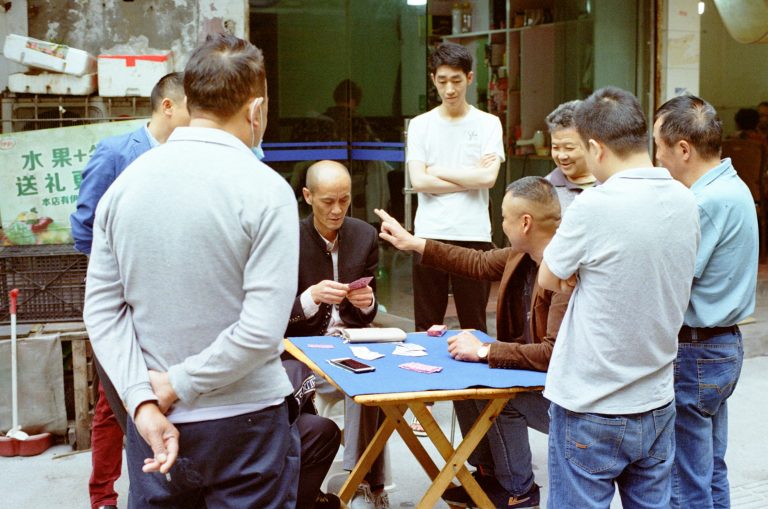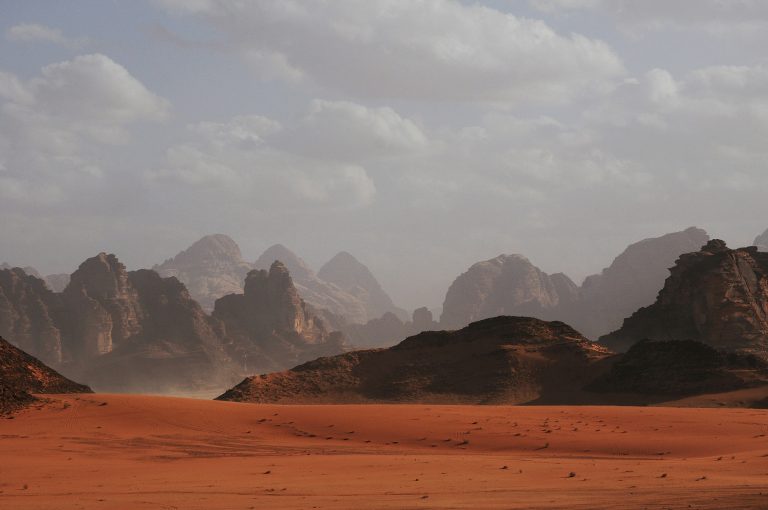
Hannah Nation serves as the Communications and Content Director for China Partnership. Prior to joining CP, Hannah worked in campus ministry with Chinese students for close to a decade. She is a graduate of Covenant College and Gordon-Conwell Theological Seminary.
Last year I spent time interviewing a group of Chinese graduate students I regularly met with for Bible study. With the permission of those interviewed, I published a series called “Stories from Chinese Millennials” – this is a late addition to that series. None of the students interview were professed Christians, though they are all in various stages of spiritual seeking, and all have now returned to China.
Though I have worked with China for a decade, I still find myself learning about the world from which my friends come. Sometimes in my interviews with these students, their answers were so familiar – the words they spoke echoed the scores of similar answers I’ve heard over the years. But at other times, their answers were truly surprising, reminding me that what I as an American can learn and study about China will still never fully prepare me for the complexity of each individual’s life. Everyone’s story is unique, even given the cultural similarities and traits I recognize.
For this interview, I spent time with a young woman I’ll call Maggie. Maggie took life very seriously and “grew up” in many ways during her year studying in the United States. Even the way she dressed and presented herself altered – arriving in fairly typical undergrad styles and leaving in the dress coats and heels of a recent business school graduate. Maggie was always pleasant to be with and often acted as a wise older sister to the group of roommates she spent time with. She also had many deep sorrows in her life that she closely guarded. She only started to open up about them to me in the last few months of her time abroad.
Maggie’s description of her understanding of God and her attraction to Christianity is one of the clearest articulations of a Chinese seeker’s ideas I’ve encountered. Check back next week to read it. But in the meantime, the life experiences she recounts in this blog post are a vital background to what she discusses later. I hope her interview can help you better understand why so many Chinese are attracted to the idea of religion, and why so many still struggle to accept the Christian gospel. Ministry with China’s people remains a complex and challenging field, and it is vitally important that the gospel which we preach makes clear that grace alone – not any good work we do – is what saves us.
How would you describe your childhood?
Never miss a story
I am twenty-two years old right now and a graduate student. I am going to finish my graduate studies in the USA, and it’s no exaggeration to say I’m one of the luckiest kids in our generation. My parents provided me with the best education, the best of everything, and I was one of the top students in my class. I had strong confidence, and I have been very lucky since childhood.
But as I have grown older, I started to realize problems that exist in our lives and society. My life is still comfortable, but I’m not as happy as before, when I was a child. I have worries, and have to face problems in my family. In the process of dealing with relationships with others, I started to realize death has a great influence on me, especially on some people who are very close in my life.
>
”We have to do good things, like heroes in the books do.”
When you were growing up, what were you taught to believe in?
A very significant characteristic for our generation is we were taught to be the best. The standard was that we have to be perfect: we have to do good things, like heroes in the books do. But after we entered society or began college, we found that things are totally different.
Yesterday, I was preparing for a financial analysis test. I’m studying assets and standards. I found the most important difference between the U.S. and China is that the Chinese people tend to set standards or measurements at a very high level that we cannot obtain. So we do very poorly, much lower than the standards. But in the U.S., standards are more manageable.
I’ll give an example. If I am a portfolio manager, in China I cannot trade on stock that I buy for my clients. But in the U.S., you can trade on that stock, as long as you disclose it to your employers. The education I have received is idealistic: you cannot do this, you have to be very nice to poor people, you need to be brave when dangers or difficulties come. But when you enter society, you find these standards are not true. If you insist on doing the right thing, you will be hurt, or faced with some kind of loss.
How did that make you feel when you saw this?
The first time, you feel very hurt. But as time went by, I produced a defense mechanism. I had to protect myself. You have to adjust yourself to fit in better to society and to reality. A lot of times, when I am alone, I think of this problem and feel I am not as good as before. Sometimes, I even blame myself: I was not like this before; when I was young, I was not like this. I don’t understand myself. It’s complicated.
>
”If you insist on doing the right thing, you will be hurt, or faced with some kind of loss.”
What events in China have impacted you the most, and why?
If I had to say one thing, I would say it is when I’ve read a book or watched a show or movie that told me what I have learned from my textbook is totally wrong. This has made a big impression on me. The textbooks—especially those whose curriculum is politics or philosophy or history, the kind of thing we learned in junior school and high school—their curriculum and those classes are revised by the government. They are changed by politicians.
Education became part of the government’s tools to govern people. They try to induce us to think the way they want us to think. Of course, this can be a positive influence, because it is better for our society to remain stable. If everyone had his or her opinion on society and the development of the nation, it would be a mess. So there is a positive impact. But I also think it is very unfair. It is ridiculous to repress our right to know what really happened.
Have you heard of the Cultural Revolution in China? I cannot imagine that human beings could be as bad as that. It is below the bottom line of humanity. But in our textbook, they told us very briefly that some people did wrong things, and then they corrected it. There was only a very slight description of the bad parts. The books skipped it, because the government did not want us to know. You see only what they want you to see. Most of the people in China—if they do not have the chance, like me, to be educated in America—only get a limited education and will be shaped by this ridiculous, changed history.
I think this was very important for me.
After I came to America, I found that freedom of speech, the freedom of expressing your own opinion, is much easier for people than in China. In China we cannot even use Google. I understand their objective; sometimes they can reduce national security issues. But it also cuts the bridge we use to get to the truth.
>
”I cannot imagine that human beings could be as bad as that. ”
Do you have a memory of a particular movie or a particular book that you read where you realized that something you had learned before wasn’t true?
Coming Home, by Zhang Yimo.
The great thing is, things are not as bad as you may think. In previous times, this kind of history was not allowed to be presented to the public. But now very famous directors can shoot a movie about it, they can present truth to the public. It’s progress, I think. As we young people become adults and become the core of society, things will be better and better.
What is the happiest memory in your life?
I have so many happy moments in my life! I think happiness has a lot of dimensions. [But] you just reminded me that I haven’t had these kinds of happy experiences for many years. It’s all from childhood!
In my third or fifth year of primary school, I attended a handwriting or speech competition. When the result was released, I came to the announcement board—I wanted to know—and started looking for my name from the bottom of the paper. And there was no name, but when I came to the first line—I don’t know how to describe that feeling, it’s just yahhhh!!!! It was a very happy moment.
Do you know the feeling when you are told something really bad is going to happen, but finally you find it’s not real? It’s false news. You get prepared for the worst, but it’s just not true. I like that feeling. Recently, sometimes I have had bad dreams about my family members, but when I wake up, I find it’s not true. It’s like life gave me another gift.
>
”Do you know the feeling when you are told something really bad is going to happen, but finally you find it’s not real?”
What is the saddest memory of your life?
I am very, very scared or afraid of death, because I’ve lost some very important people in my life. When I was sixteen-years-old, in the second year of high school, I came home and my father told me my grandfather had lung cancer. I was totally broken. I kept crying and couldn’t stop.
Two or three years after that, my mom herself got lung cancer. So it’s very hard. It’s too hard. My mom is a very good person. I don’t know why bad people don’t have any diseases, but my mom does.
Only family members stand by you. A lot of people seem like they’re important in your life, but when you really face difficulties, they can’t offer any help. After that, every year, when I have my birthday wish, I always say: “Keep my mom healthy.” It’s the only wish right now.
Some of my friends or classmates, when they can make wishes they will say: “I hope my parents can be as young as possible.” They want them to be slow to get old, right? But for me, it’s different. I wish time could fly as quickly as possible. I want time to fly, and twenty years to have passed by, and my mom is still here.
>
”Only family members stand by you.”
How would you describe your attitude towards life?
Before I was eighteen, before I came to college, I was happy and didn’t know sadness. What is sorrow? What is sadness? I had not experienced the feeling of broken-down sorrow. But I got the news about my mom’s cancer just after my college entrance examination, so I spent the first two years of college in a very bad mood. I would even cry when I was walking on the street. After that, I had a negative attitude toward life. I became realistic. I didn’t believe the stories in fairytale books. That was the change.
I think it’s part of growing up; it’s part of life. Recently, as I have grown older, I’ve realized everyone has his or her own problems. They don’t show it; they bury it in the bottom of their heart. That is why we should show more kindness and more generosity to other people. We are all the same.































